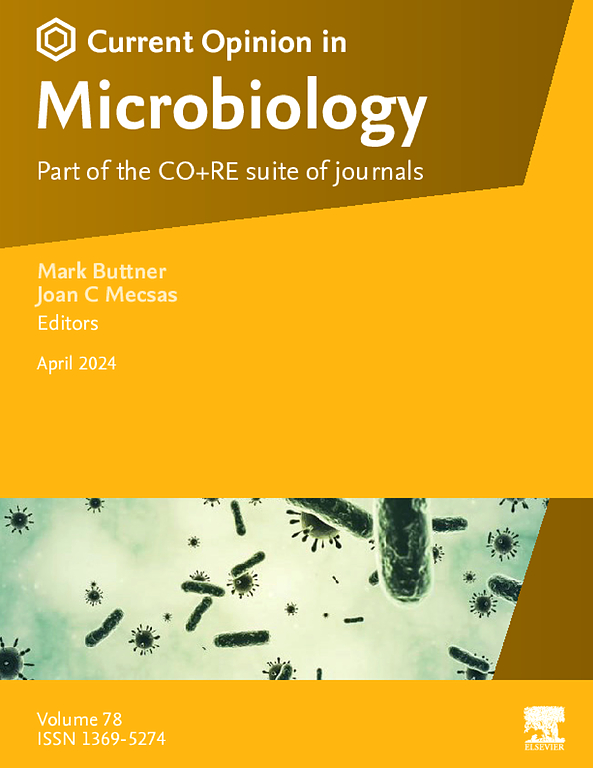Can a microbial community become an evolutionary individual?
IF 7.5
2区 生物学
Q1 MICROBIOLOGY
引用次数: 0
Abstract
Microbial communities provide crucial services for human well-being, driving an interest in designing and controlling them towards optimised or novel functions. Unfortunately, promising strategies such as community breeding — sometimes referred to as ‘directed evolution’ or ‘artificial community selection’ — have shown limited success. A key issue is that microbial communities do not reliably exhibit heritable variation, limiting their capacity for adaptive evolution. In other words, microbial communities are not evolutionary individuals. Here, we provide an overview of the literature on evolutionary transitions in individuality and, with insights from paradigmatic organisms, build a multidimensional space in which the individuality of a multispecies community is characterised by three ecological traits: positive interactions, functional integration, and entrenchment. We then place microbial communities within this individuality space, explore how they can be directed toward increased individuality, and discuss how this perspective can help improve our approach to community breeding.
微生物群落能成为一个进化的个体吗?
微生物群落为人类福祉提供了至关重要的服务,推动了对设计和控制它们的兴趣,使其朝着优化或新颖的功能发展。不幸的是,有希望的策略,如群落繁殖——有时被称为“定向进化”或“人工群落选择”——已经显示出有限的成功。一个关键的问题是,微生物群落并不可靠地表现出遗传变异,限制了它们的适应性进化能力。换句话说,微生物群落不是进化的个体。在这里,我们概述了关于个体进化转变的文献,并结合范例生物的见解,构建了一个多维空间,在这个空间中,多物种群落的个性以三种生态特征为特征:积极互动、功能整合和壕沟。然后,我们将微生物群落置于这个个性空间中,探索如何将它们定向到增加个性,并讨论这种观点如何有助于改进我们的社区育种方法。
本文章由计算机程序翻译,如有差异,请以英文原文为准。
求助全文
约1分钟内获得全文
求助全文
来源期刊

Current opinion in microbiology
生物-微生物学
CiteScore
10.00
自引率
0.00%
发文量
114
审稿时长
6-12 weeks
期刊介绍:
Current Opinion in Microbiology is a systematic review journal that aims to provide specialists with a unique and educational platform to keep up-to-date with the expanding volume of information published in the field of microbiology. It consists of 6 issues per year covering the following 11 sections, each of which is reviewed once a year:
Host-microbe interactions: bacteria
Cell regulation
Environmental microbiology
Host-microbe interactions: fungi/parasites/viruses
Antimicrobials
Microbial systems biology
Growth and development: eukaryotes/prokaryotes
 求助内容:
求助内容: 应助结果提醒方式:
应助结果提醒方式:


